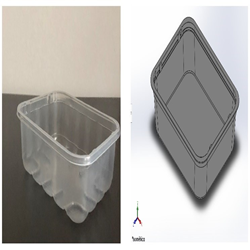Nanotechnology as we know it has been the pinnacle of our modern development in the era of science and technology. Due to its promising capabilities and benefits, we are envisioning a world where endless possibilities could be achieved, for instance, a cure to HIV. However, nanotechnology could just be at the start of its journey to accomplish such an achievement. Even though we have only scratched the surface of its capabilities, the results have shown a convincing application that can be further derived from this nanotech especially in energy application. In addition to the rise of many commercialized products involving nanomaterials, nanotechnology could provide the potential to increase energy efficiency across all branches of industry and to economically supplement energy production through new technological solutions. Nanotechnology innovations could simply impact the energy sector as a whole.
In the aspect of energy conversion, nanotechnology is being highlighted due to its unique ability to manipulate light and control energy flow at nearly the atomic level. The popular energy-converting device, Solar panels, has been widely used in this modern time and many people have proposed their liking to this unique gadget. However, even with the minor presence of nanomaterials in their structure, most of today's commercial solar cells are based on silicon which results in 10-25% of efficiency. Thus, efforts have been made to improve the solar cells’ efficiency and at the same time, lower its cost. Researchers at Flinders University have used phosphorene nanosheets to build low-temperature perovskite solar cells which they claim have the potential to be more efficient and possibly cheaper than silicon solar cells. On the other hand, researchers at Michigan Technological University have developed a honeycomb-like structure of graphene and achieved a 7.8 per cent increase in the conversion of sunlight to electricity. The usage of nanomaterials in solar panels could bring us the benefits of reducing manufacturing costs as a result of using a low-temperature process similar to printing instead of the high-temperature vacuum deposition process and the ability to reach higher efficiency when compared to the conventional ones.
The development of energy storage nanotechnologies has also become the center of attention to many researchers. This has led to the enhancement of electrical energy stores like batteries and super-capacitors. Due to the high cell voltage and the outstanding energy and power density, lithium-ion technology is regarded as one of the most important and widely used secondary batteries for energy storage. The performance of Li-ion batteries can be greatly improved in terms of rate capability and cyclability by coating the surface of an electrode with nanoparticles. More current can flow between the electrode and the chemicals inside the battery due to the increase in surface area of the electrode. This also serves the purpose of producing newly advanced electronic devices, communication and transportation facilities that require high energy storage capacity, better cycling performance and higher rate capability.
Nanotechnology could also improve fuel availability by making the production of fuels from low-grade raw materials more economical and efficient and increase the mileage of engines. To achieve these, nanotechnology increases the effectiveness of catalysts by using nanoparticles as their main material. Catalysts made from nanoparticles have a larger surface area which allows more chemicals to interact with the catalysts. Thus, making the catalyst more effective.
Many aspects could be discussed in making nanotechnology as the apex of science and technology. As our demand for energy continues to grow, the focus has shifted towards developing more efficient and sustainable technologies that could generate and store energy as a means to create a better world. Hence, nanotechnology could be seen as a promising solution to achieve these objectives. Many scientists believe that nanotechnology will lead to huge advances in many different areas of disciplines, especially in the energy sector. Truly, nanotechnology is the future.
Putera Arif Haikal bin Rusli
Universiti Putra Malaysia (UPM)
"Winner for the Science Article Writing Competition"
Date of Input: 20/07/2020 | Updated: 20/07/2020 | nursyahirah
MEDIA SHARING























